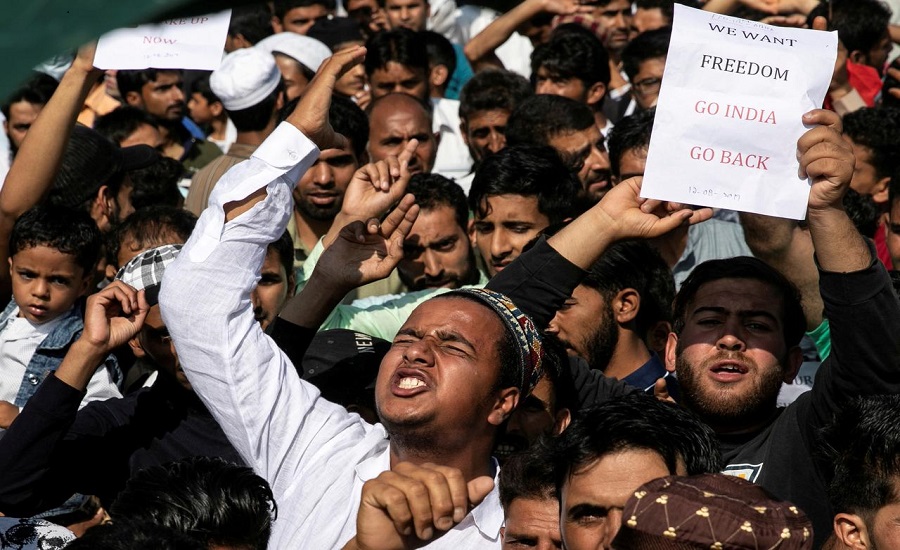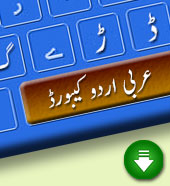Live Makkah
Live Madinah
Urdu Font Download
Latest News:
Padubidri: Fishing boat capsizes; all 7 fishermen on board rescued Alleged atrocity on lawyer: Punjalakatte SI suspended Moral policing at jewellery shop: 4 arrested Bajrang Dal activists try to assault youth, girlfriend in Mangaluru SC to hear Bilkis Bano’s plea against release of 11 convicts on 13 Dec Nusrat Noor: First Muslim Woman to Top Jharkhand Public Service Commission
Latest News:
Padubidri: Fishing boat capsizes; all 7 fishermen on board rescued Alleged atrocity on lawyer: Punjalakatte SI suspended Moral policing at jewellery shop: 4 arrested Bajrang Dal activists try to assault youth, girlfriend in Mangaluru SC to hear Bilkis Bano’s plea against release of 11 convicts on 13 Dec Nusrat Noor: First Muslim Woman to Top Jharkhand Public Service Commission
Kashmir: Govt Should Not Miss Change in Muslim World’s Perception About India

New Delhi, 05 August 2020 [Fik/News Sources]: As Kashmir marks one year of losing its special status on August 5, Turkey has renewed its support to Pakistan on the issue of Kashmir. Dawn of Karachi reported that Turkish President Recep Tayyip Erdogan had a telephonic conversation with President Arif Alvi on August 1 and assured him of his country’s support for Pakistan’s stance on the Kashmir issue. He also talked to Prime Minister Imran Khan on the phone.
Alvi announced his conversation through two tweets the following day. “President Dr. Arif Alvi and President Erdogan exchanged Eid-ul-Azha greetings in a telephonic conversation. Important matters, including Kashmir and Covid-19, were discussed. Pakistan appreciated President Erdogan’s unequivocal statement on Kashmir before the UNGA.”
A second tweet read: “The Turkish President assured that his country would continue to support Pakistan’s stance on Kashmir as both brotherly countries have similar goals.”
Pakistan had reacted sharply when India decided to scrap Article 370 of the Constitution revoking the special status to Jammu & Kashmir. It expelled the Indian High Commissioner soon after deciding to downgrade diplomatic ties with New Delhi. The Indian government told the international community that its Kashmir move was an internal matter and warned Pakistan to accept the reality.
Erdogan and the erstwhile Prime Minister of Malaysia Mahathir Mohamed, were the only world leaders who had strongly criticised the Indian decision. Other world leaders had restricted themselves to ‘watching the development with concern’. The United States called on India and Pakistan to maintain calm and restraint while United Security Council (UNSC) held a rare “closed consultations” on Kashmir after 50 years.
Arab countries, especially wealthy Gulf monarchies, with which India has historical and trade ties and which host nearly 70 lakh Indian workers, did not react immediately, though later developments showed that they were not very happy with India.
Mahathir Mohamad’s comments were the harshest. Speaking at the UN General Assembly in October 2019, he alleged that India had “invaded and occupied” Jammu & Kashmir and asked New Delhi to work with Islamabad to resolve the issue. This caused tension between the two countries affecting their annual trade worth $10.5 billion. Malaysian palm oil of which India is the biggest importer was worst hit. The relations, however, normalised after the departure of Mahathir and a new prime minister taking over in March.
But Turkey remains consistent in its stand on Kashmir. India and Turkey have historic trade and cultural relations and maintain diplomatic ties since 1948. Erdogan’s current assurance to Pakistan on Kashmir was his third since August 2019. Earlier in February this year, while addressing a joint session of Pakistan parliament in Islamabad, he said, “the issue of Kashmir is as close to us as it is to Pakistanis.”
But the most crucial statement on Kashmir came from the Organisation of Islamic Cooperation (OIC) in June when the 57-member group of Muslim countries backed the Kashmiri people’s demand for self-determination and rejected the Indian government’s decision to scrap the special status of Jammu & Kashmir.
A virtual meeting of the OIC’s Contact Group on Kashmir, held on Pakistan’s call, adopted a communiqué that also expressed concern over ceasefire violations along the Line of Control (LoC) and called on India to “rescind its unilateral and illegal actions, and allow the Kashmiri people to freely exercise their right to self-determination through a UN-supervised plebiscite”. Hindustan Times, quoting a statement issued by Pakistan’s Foreign Office, said the communiqué was unanimously adopted by the Contact Group.
This was the second such meeting of the global Muslim body that expressed its concern over Kashmir during last one year. In September 2019, the OIC Contact Group on Jammu and Kashmir “expressed grave concern that India’s actions aimed at changing the identity and demographic composition of the occupied Jammu & Kashmir and to transform it from a Muslim-majority state into a Hindu-majority territory.” The statement came following a separate meeting of the Contact Group during the 74th session of UN General Assembly in New York.
Kashmir is as old a dispute as the history of modern India. But the OIC, which was formed in 1969, has never used such strong language for India and any of its actions, including on Kashmir. Barring Pakistan, India has enjoyed excellent relations with all the member countries of the OIC, including Saudi Arabia where it’s headquartered. The way the government of Prime Minister Narendra Modi has been treating Kashmiris ignoring dozens of reports by national and international organisations warning of human rights violations and sufferings of common man in the valley, the global public opinion is going against India.
Kashmir is the only Muslim-majority state that, following August 5, 2019 decision, has become a Union territory which means now it is under the direct rule of the Centre. Muslim governments chose not to comment directly on the decision owing to a variety of reasons. However, OIC is their representative body where Saudi Arabia, India’s strongest ally in the Arab/Muslim world, dominates.
The organisation, which also represents nearly 30 per cent of the UN members, also chose to speak on the Delhi riots in February this year. This is also something new. It condemned the violence, alleged discrimination against Muslims, and noted that the violence and destruction of property had chiefly targeted Muslims. Although India rejected this and previous comments by OIC as well as Turkey and Malaysia, the change in perception about India should not be missed.
Prayer Timings
| Fajr | فجر | |
| Dhuhr | الظهر | |
| Asr | أسر | |
| Maghrib | مغرب | |
| Isha | عشا |







